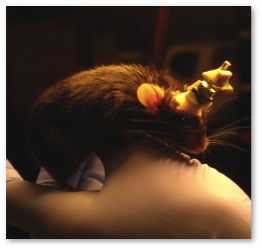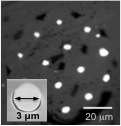Flexible High-Resolution Neural Recording Arrays
- Category: Nanotechnology, Optics & Photonics
- Tags: polina anikeeva
Lack of technology for high-throughput electronic recordings and simultaneous stimulation is a major limiting factor for the development of neuroprosthetics and for understanding electrophysiological signatures of the diseased brain. For example, our inability to monitor neural activity during deep brain stimulation (DBS) in Parkinson’s disease patients limits choices for possible therapies. To enable simultaneous neural recording and stimulation, we have previously demonstrated a miniature device “optetrode,” which combines optical fiber light delivery and microelectrode neural recording in freely moving mice during neuroscientific experiments [1] .
This project extends the optetrode’s concept to fabrication of versatile neural recording devices (shown in Figure 1) using a novel fiber-inspired processing method. Our fabrication technique allows for extreme reduction of the active probe diameter potentially enabling intimate interfaces with individual neurons (as Figure 2 shows). Our approach allows for simultaneous processing of multiple materials (polymers and metals) and can be used for high-throughput fabrication of multiple functional elements such as neural recording and, optical stimulation. In addition, the geometry of our devices can be tailored to a particular application such as brain, spinal cord, or peripheral nerve recordings.
- Figure 1: Wild type mouse implanted with optetrode: combined optical stimulation and electrophysiological recording device [1] .
- Figure 2: Partial cross-section image of a flexible high-resolution neural recording array.

